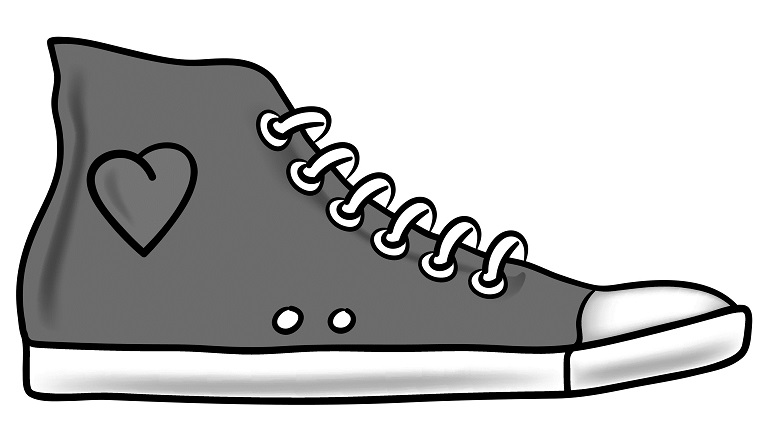I think shopping is my daughter’s love language, especially when it is spoken in the dialect of shoes. I have vivid memories of her as a two-year-old, raiding the dress-up box for her favorite accessory—a pair of plastic princess shoes.
She was newly home from Haiti, and so frail that she could hardly walk across the floor on her bare feet without falling, but she insisted in clomping around the house in those slick, but highly fashionable shoes. I would scurry along behind her, terrified and ready to catch her the moment fashion took her down.
Recently, we both needed new shoes, so we braved the chaos of the mall on a weekend to hunt our prey. It took her forever to settle on a pair of bright yellow Chuck Taylor Converse. It took me about five minutes to decide on a matching pair in electric blue (after she approved, of course).
As we walked out of the mall, hand in hand, she was beaming. Suddenly, she squeezed me tightly and said, “Thank you, Mommy! You filled my bucket!”
“Your bucket?” I asked.
“Yes,” she replied. “My teacher says everyone has a bucket, and sometimes people dip into your bucket by being unkind. That’s why we have to fill up each other’s buckets.”
“Oh, I see,” I said. “With kind words, doing nice things for each other, stuff like that.”
“Right,” she said.
“And shoes fill your bucket?” I asked, chuckling.
“Right.”
As soon as we were in the car, we both shed our old shoes, so that we could wear the new ones on our final errand before returning home.
When we stepped into the next parking lot, she took my hand again. “It’s good we’re wearing our shoes,” she said. “We match. That way, people know we belong together.”
I was stunned into silence.
“We belong together…”
My heart wrenched at the innocent expression on her face, her longing for visible proof to the world that I was hers, and she was mine.
There is no doubt that my daughter carries with her many scars from spending the first two years of her life in an institution, but for her the issue of adoption has only rarely surfaced until now. Oh, I’ve talked to her about it but she has never seemed to struggle with it, as her sister has. Lately, I have begun to realize that, although her wounds are less visible than her sister’s, they are no less real.
Not long ago, I asked her if kids ever say anything to her about being adopted, or about being of a different race than her parents.
“Yeah,” she said. “Sometimes.”
“What do you tell them?” I asked.
“I say, ‘How would you like it if you were brown and your mama was white? How would you like it if you were adopted and people were saying stuff? I don’t think you’re treating me the way you want to be treated, are you? So, why don’t you just worry about your own self?”
Again, I could say nothing. But there in the parking lot, I saw into her heart, and recognized a loss I could do very little to remedy. No matter how much our hearts intertwine, she will always be black and I will always be white. Sadly, only the most sensitive people who come our way will see that we belong together.
I batted back the tears, and said, “That’s right. We belong together…”
“My shoes are yellow,” she replied. “Yours are blue. You are the sky. I am the sun.”
And we are. Black, white. Sky, sun. Mother, daughter.
Different? Yes, but each so incomplete without the other.



